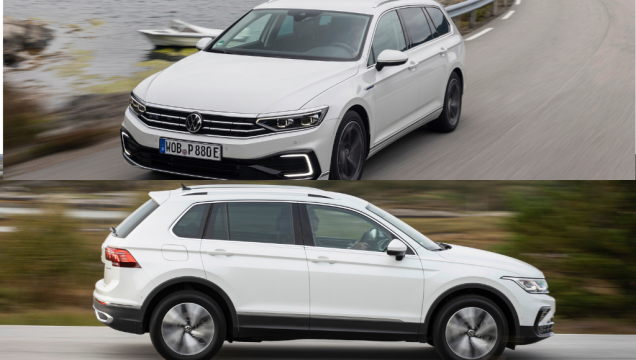Estate cars, traditionally, don’t sell well in Ireland. Compared to the UK and the rest of Europe, where estates can take up as much as 50 per cent of some market segments, here at home we generally still see them as cars for commercial travellers. Blame all those early-nineties Opel Astra estates with Guinness logos on the doors, I guess.
With Minister For Transport Eamon Ryan flagging an incoming tax levy for SUVs, perhaps the estate’s time in Ireland has finally come? Defining exactly what is an SUV could well be tricky for the Department, so a blanket tax that covers everything from a Reanult Captur to a Range Rover is the most likely result — a blunt instrument of government if ever there was one. Higher taxes are rarely to be applauded but in this case, if it’s the only way to wean us off our SUV dependency, then perhaps it’s a good thing.
Estates, though? Irish people hate estates. Well, that could be changing, as in 2021 estate sales took a significant tick upwards in the Irish market, climbing from seven per cent of all sales, to almost ten per cent. Now, that’s a partial misnomer — the Society of the Irish Motor Industry regards such cars as the Seat Tarraco and Volkswagen ID.4 as estates in spite of them very clearly being SUVs. The VW ID.3 also gets logged as an estate, even though we reckon it’s a hatchback (or, at a push, a compact MPV).
SUV ubiquity
There were some proper estates doing well in 2021, though, such as the Kia Niro (OK, so it’s a bit crossover-y), which was buoyed by strong electric sales. The Seat Leon estate did well enough too, as did estate versions of the Toyota Corolla and Skoda Octavia. Mind you, we’re talking hundreds here, not thousands.
The problem with replacing our SUVs with more efficient estates is that sales of such vehicles across the world are generally in decline as the SUV achieves ubiquity, especially in major markets such as the US and China. That has triggered two very different responses from two major carmakers, indeed two brands that are indelibly linked with estates.
Mercedes-Benz, whose E-Class and C-Class estates have traditionally been amongst the best practical cars that one can buy, has indicated that it might stop making estates altogether. According to a report in Germany’s Automobilewoche, it looks as if the compact CLA Shooting Brake estate will end production in 2025, and will not be replaced. That is, perhaps, not a dramatic surprise given that model’s niche market position but Automobilewoche also reports that by 2030 the mighty E-Class estate might also be a goner.
Well, mostly a goner. The report also suggests that Mercedes is working on a new family of high-riding crossover models, that may be rather similar to the current E-Class All-Terrain model, which tries to mix the appeal of an SUV with the more practical, lower-slung estate body.
Volvo, a brand virtually built on estates, has thankfully said that it will definitely keep its traditional wagon bodies in production. That’s in spite of sales of models such as the XC60, XC40, and XC90 dramatically eclipsing the brand’s saloons and estates. Indeed, some 75 per cent of Volvo’s sales are now of XC-badged crossover and SUV models. According to a report in Autocar, Volvo has said that it will try to make its estates more appealing thanks to lower, sportier styling and that such a move would also unlock more aerodynamic efficiency and greater range for electric versions.
Efficiency
That efficiency could be crucial, and it’s a key advantage that estates have over SUVs. A study published by the International Energy Agency (IEA) found that if you take SUVs out of the equation, the oil consumption of cars across the globe fell by ten per cent in 2020. Some of that is down to increasing sales of electric cars, while some is down to improvements in fuel economy. Add SUVs back into the equation, and that improvement is cancelled out. According to the IEA, in the decade running up to 2020, global emissions from ‘conventional’ cars fell by 350-megatonnes of CO2, but emissions from specifically SUVs rose by 500-megatonnes.
The simple maths of the problem can be seen by comparing two cars using the same mechanical package. Both the Volkswagen Passat estate and the Tiguan SUV use the same MQB chassis, the same electronics package, and the same 2.0-litre 150hp ‘Evo’ TDI diesel engine. Both cars have seats for five, and large boots (the Passat estate can swallow 650 litres, while the Tiguan manages 615 litres if you slide the back seats all the way forward). However, the Passat has official CO2 emissions of 127g/km, while the Tiguan — same engine, same basic structure, same DSG automatic gearbox — has emissions of 145g/km.
Consumer advocates Which? reckons that SUVs are far worse than estates when it comes to both fuel economy and emissions. “Our independent tests reveal that, on average, SUVs emit much more CO2 than conventional models. Our lab-measured tailpipe emissions tests, tank-to-wheel CO2, which are more stringent than the official emissions tests, show just how big the difference is” said Which?
According to its measurements, Which? found that a medium-sized diesel SUV emits 171g/km on average, compared to 136g/km for a ‘medium car’ or 155g/km for a ‘large car.’ Both of those latter categories include luxury and high-performance models.
It’s the same story in terms of fuel economy, where Which? found that a medium-sized SUV could cost you more than €300 per year extra in fuel expenses, while even small ‘crossover’ SUVs were around seven per cent less fuel efficient than mechanically-similar small hatchbacks.
While the switch to electric power will remove some of those issues, the fact is that power for such vehicles still needs to be produced, and lighter, lower EVs will consume less electricity — and therefore need to be charged less often — than heavier, less efficient vehicles. Smaller, lighter cars can also manage with smaller batteries, which have much less environmental impact at the point of mining and manufacture.
The availability of estate models has dwindled in the Irish market of late, but there is hope with incoming new models. Peugeot and Opel will launch their mechanically-similar 308 SW and Astra estates this year, initially with plug-in hybrid versions and with fully-electric models coming down the track.
Volkswagen has an electric analogue for the Passat, with an estate version likely, in the works while Audi’s gorgeous all-electric (and 700km-range) A6 e-tron Avant will launch in 2024.
The SUV tax will be bemoaned by many, but there is a simple solution — go lower.







